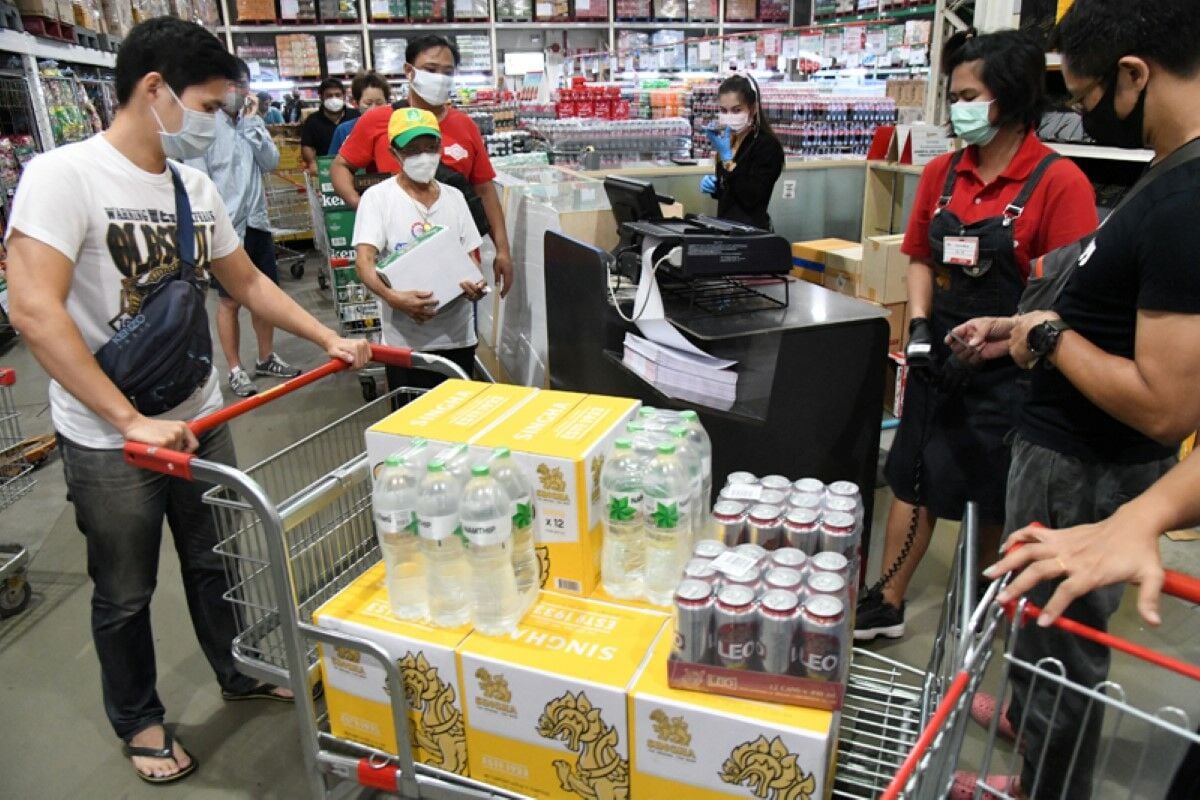
The Ministry of Public Health will present the Alcoholic Beverage Control Bill to Parliament next month, marking a significant step in the legislative process. Nipon Chinanonwait, who directs the ministry’s Office of Alcohol Control Committee, shared updates regarding the bill yesterday, December 15.
According to him, the revised Alcohol Beverage Control Act is slated for its second and third readings in Parliament by January, alongside other alcohol-related legislative proposals.
The proposed bill does not support 24-hour alcohol sales. Instead, it introduces specific regulations that will dictate permissible sales hours, possibly adjusting the current sales prohibition from 2pm to 5pm to better align with international norms. Enforcement will be strengthened through the establishment of provincial alcohol control committees to curb underage drinking.
Over 30 members from anti-alcohol advocacy groups submitted a petition to the Public Health Ministry yesterday, advocating for stricter measures against alcohol drinking games, citing health and legal concerns. These advocates emphasise the risks of alcohol poisoning and loss of consciousness associated with such activities.
Ministry of Public Health Vice Minister Thanakrit Chit-areerat voiced his concerns about drink driving over the new year holiday, urging drivers to remain sober. He underscored the prolonged health risks that young drinkers face.
The ministry has plans to direct its provincial offices nationwide to ramp up business inspections, prevent alcohol-drinking contests, and hold alcohol manufacturers and sellers accountable for public safety.
Simultaneously, organisations such as the Child Youth and Family Foundation, the Life Quality Development Network, and the Stop-Drink Network Thailand, with support from the Thai Health Promotion Foundation (ThaiHealth), have launched a campaign targeting the prevention of drink-driving in anticipation of the new year celebrations.
Rungarun Limlahaphan, director of the Social and Health Risk Control Section at ThaiHealth, reported a decline in alcohol consumption across Thailand, with drinking rates decreasing from 28.4% in 2017 to 28% in 2021. However, the issue of heavy drinking persists, with over 5.7 million adults admitting to binge drinking within the past year.
Rungarun also highlighted that 34% of fatal accidents during last new year’s celebrations were attributed to drink driving.
Thatchawut Jardbandista, a road safety expert, cautioned that any alcohol bill policy shift extending sales hours could exacerbate road accidents. He advocated for more stringent penalties, including mandatory jail time for individuals caught driving under the influence.
The combined efforts of the government and various organisations aim to mitigate alcohol-related risks and promote a safer environment as the country approaches the festive season, reported Bangkok Post.
Frequently Asked Questions
Here are some common questions asked about this news.
Why might limiting alcohol sales hours impact public health positively?
Reduced sales hours can decrease alcohol consumption, lowering risks of alcohol-related accidents and health issues.
How could strengthening enforcement of alcohol laws change community safety?
Stronger enforcement could deter underage drinking and reduce alcohol-related incidents, enhancing overall community safety.
What if strict penalties were imposed for drink-driving offences?
Tougher penalties could deter individuals from drink-driving, potentially reducing the number of road accidents.
How do anti-alcohol campaigns influence societal norms around drinking?
Campaigns can shift perceptions by raising awareness of risks, encouraging safer behaviours, and promoting healthier lifestyle choices.
Why do advocacy groups focus on banning alcohol-drinking games?
These games heighten risks of alcohol poisoning and irresponsibility, prompting health concerns and legal actions from advocacy groups.
The story New alcohol bill to limit sales hours, boost safety measures as seen on Thaiger News.
